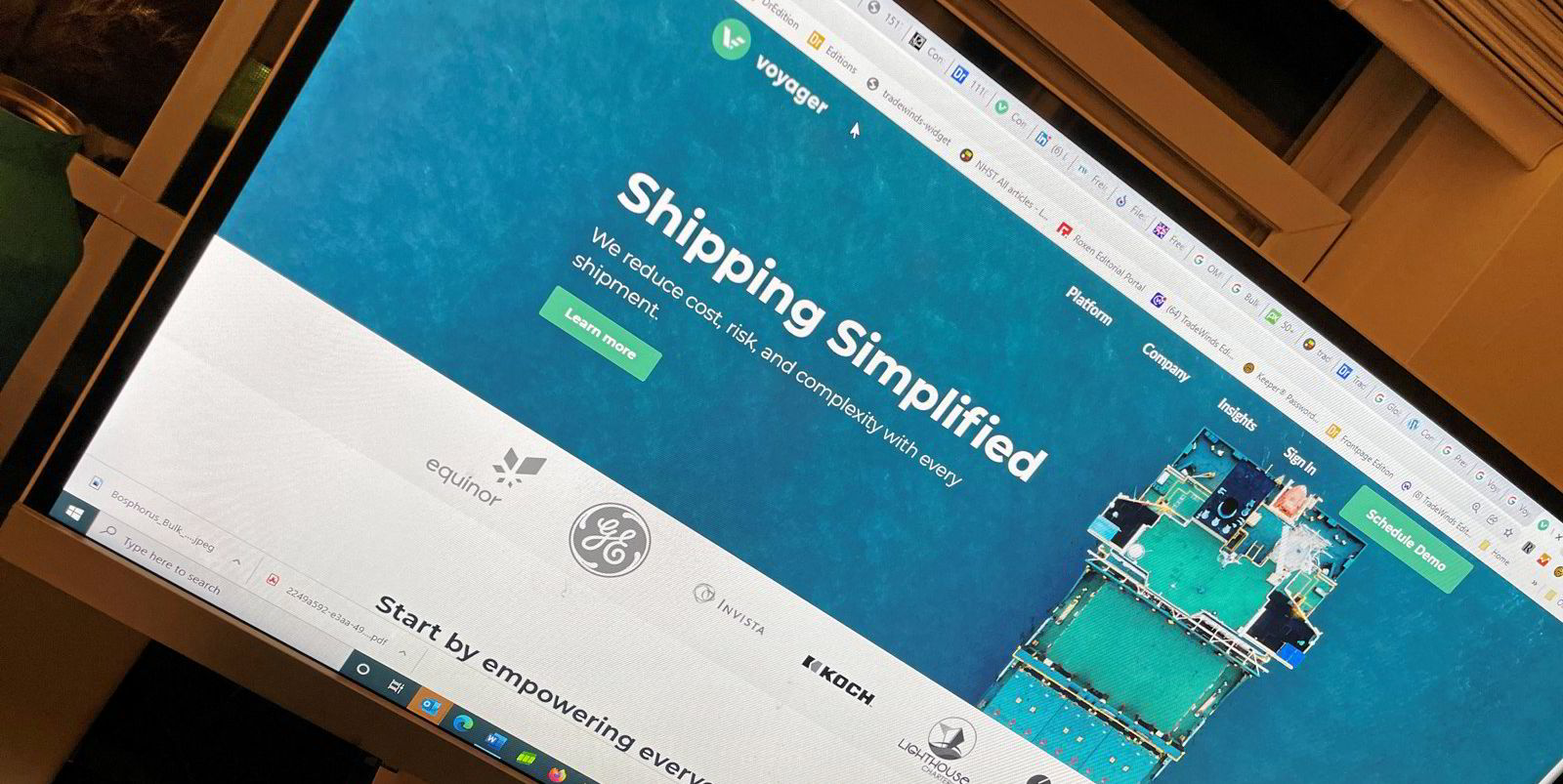Shipping is a step closer to blockchain-based forward freight agreements, which could disrupt and open up the notoriously opaque marketplace.
London-based tech firm Zuma Labs has been developing blockchain-based oracle networks for use in trading and in smart contracts, which it hopes will open up new uses for shipping data — and new ways to monetise it.
Oracles automatically gather "trustworthy" data from multiple sources, which is then provided to blockchain-based products that rely on that data.
An independent oracle can be used to gather, for example, price information from a group of 10 "semi-trusted" data providers such as brokers, in order to calculate a median price that can be trusted by all users.
To date, notions of how blockchain technology might be adopted in shipping have been abstract. But oracle networks will give blockchain-based products a solid footing in real-world applications — such as in shipping — because they incentivise honest conduct and build trust between users, according to Zuma's founder and chief executive.
"You have these trusted groups of people who can provide data and they're held accountable to similar principles as in blockchain. Basically, if you take the median — the agreed-upon price — and you're too far outside of that, you get penalised and you face a monetary penalty," Chase Bennett told TradeWinds.
"By taking an aggregate sampling, we can reduce the risk of one bad actor."
The technology can also be used in smart contracts. Zuma has developed an oracle that gathers AIS data from vessels, which would alert banks whenever a financed ship has entered waters that are forbidden in the loan contract.
Freight futures
Zuma's FFA pricing oracle has already been adopted by Braemar ACM Shipbroking, which is a 20% shareholder in the tech firm.
It means Braemar's FFA data is now accessible to anyone building a blockchain-based pricing mechanism for so-called 'synthetic' freight derivatives, which will edge nearer if more brokers adopt the Zuma oracle.
Pricing oracles, such as the one Zuma has developed for FFAs, can be used to settle prices and to prompt action like margin calls.
But these 'synthetic' derivatives trade purely electronically and, at this early stage, commissions are typically paid to the blockchain platforms that facilitate them.
Brokers, therefore, have an opportunity to be "first at the table" and define how their data is monetised — potentially by selling the oracle's data directly to exchanges, Bennett said.
"Nobody has perfect information. I think technology will reward brokers who embrace the areas that really add value," he said.
"Getting two traders to trade against each other is a difficult thing.
"We've built some trading technology and we know that trading screens without brokers don't work. Liquidity provision is what traders want and that's why they pay brokers. Access to data and access to liquidity provision, those things are not changed by computers or blockchain."
Opportunity
This begs the question: where might this leave the Baltic Exchange in the future?
Around 85% of the Baltic's revenue is generated from FFA settlement data gathered by brokers, who are not paid for the service.
The Baltic's role as the nexus of FFA data could be disrupted if blockchain-based freight derivatives are adopted widely in the future.
"The Baltic has an opportunity themselves to move the industry forward," Bennett said.
"You can't just sprinkle blockchain and say, 'Great, it's magical'. The Baltic can play a tremendous role there. They might end up perhaps ceding some of the legacy function, saying 'Look, the code can just determine the index price. We don't need to do this'.
"They can be the leader and coordinator and set the agenda, which is ultimately what I think they should do. The Baltic's job is to increase adoption and grow the market and make it more accessible."
As it rolls out its oracle offering, Zuma is targeting data providers that want to make their data accessible and to cut down on fraud, unissued errors and even costs.
Potential customers could be logistics platforms, enterprise resource planning systems, document managers, voyage managers and accountants, Bennett said.
"In blockchain, people typically build one proof-of-concept or one hypothetical [product] and they think their job is done — and that's why we're left with just cryptocurrencies and, I think, lagging adoption," he explained.
"Now, our job is to go and connect the possible with the reality."
The launch of Zuma's oracle sets the scene for the adoption of smart contracts in shipping, which could be used for shipping loans or freight derivatives.
Smart contracts are digital programmes stored on a blockchain that are usually used to automate the execution of an agreement.
Using automation, smart contracts verify that predefined terms and conditions within the contract are being met. They can also automate the next step in a workflow, once a party is compliant with or in breach of those contractual obligations.
The benefit of using smart contracts is that all participants can be immediately certain of the outcome, without any loss of time or the involvement of intermediaries. This cuts costs and increases trust and transparency between parties.
There are also big security benefits to using smart contracts because they are based on encrypted blockchain transaction records, which are very difficult to hack.









